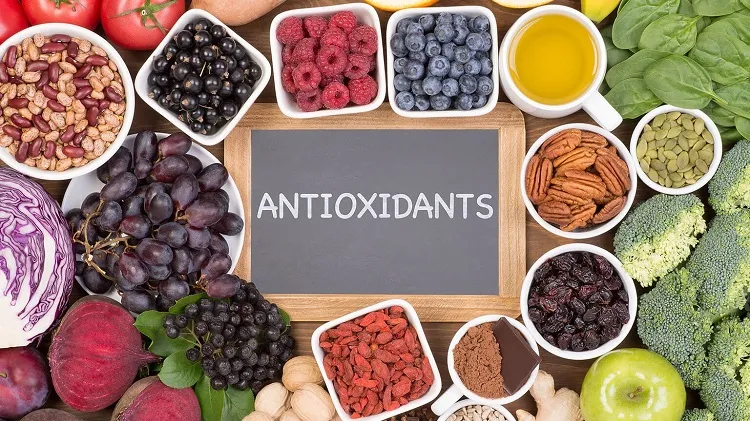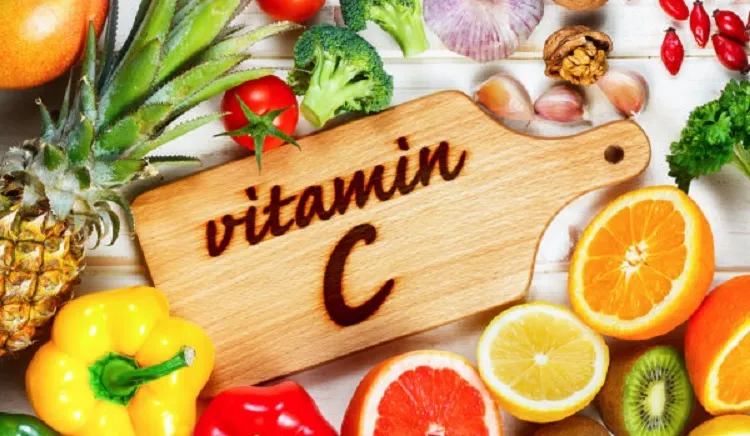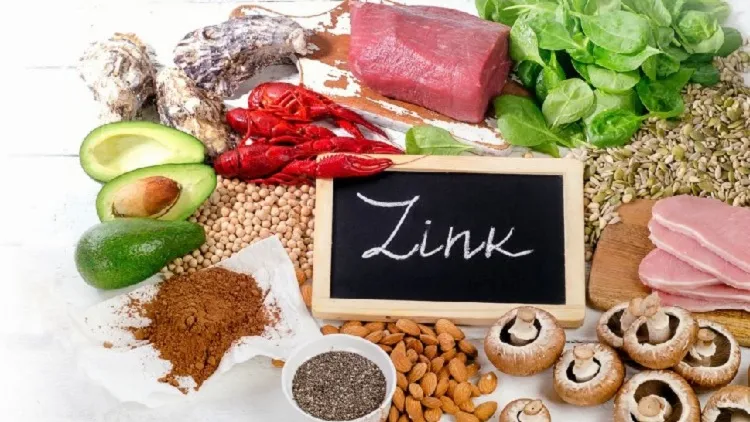Oxidative stress is a “modern” concept, as over the past decades, we have been exposed to a polluted environment and food products with harmful chemicals. In addition to that, we are so busy with our hectic daily lives that we fail to check whether our diet is healthy. Because it is often not rich enough in vital vitamins and minerals, and we are vulnerable to oxidative stress. But with some little changes, you may make big steps for improving your health. Do you want to know which substances protect against oxidative stress? This article will show you the ways in which you may turn some harmful habits into helpful ones.
What is oxidative stress and antioxidants?

Oxidative stress appears when there is a great amount of free radicals in our body. These molecules are often the result of some natural chemical reactions in our cells. Free radicals, that are produced in normal concentrations, can help fight off pathogens, that lead to infection.
But the free radicals are very reactive, as they contain oxygen and have a free electron. That’s why they easily take part in chemical reactions in our organisms, called oxydation. When the number of these free radicals is too high, they can be harmful and may lead to cell damage. This is called oxygen stress. The organism manages and reduces this stress with the help of some small “magical” molecules, called antioxidants. They are mostly vitamins and minerals.
Why free radicals may be dangerous?

Oxidative stress happens naturally in our body, but under control. But when oxidative stress is on high level, it is dangerous. The process can be triggered by some negative factors like bad lifestyle habits or unfavorable environment. This enhances the level of free radicals.
As an effect, oxidative stress is speeding up the aging process and may cause some dangerous diseases. These are diabetes, atherosclerosis, high blood pressure, cancer, and heart disease. In this regard, do you know which substances protect against oxidative stress?
What reduces oxidative stress and how?

In order to lower the level of free radicals, antioxidants may help a lot. They are specific molecules, which protect our cells against oxidative stress. Because they neutralize the excess free radicals in the cell. They do this by donating an electron to a free radical, making it less reactive.
That’s why experts suggest that our diet should include enough amount of antioxidants to reduce the concentration of the toxic free radicals. It’s proven that fresh fruits and vegetables contain the most antioxidants. And if you follow the next tips, you’ll not only prevent unwelcome diseases, but look younger for longer.
Which substances protect against oxidative stress?

Many people ask the diet specialists: “Which substances protect against oxidative stress and the resultant cell damage?” In fruits, vegetables and other products there is a variety of antioxidants that can deactivate the free radicals in your body. Make some effort to decrease and manage the oxidative stress with their help.
Eat fruits and vegetables at least three times a day (the best is four-five times). And you’ll be sure that your body receives enough essential antioxidants in the form of vitamins and minerals. Some good examples of fruits and vegetables, which lower oxidative stress, include:
- Fruits that reduce oxidative stress: cherries, berries, prunes, citrus fruits
- Vegetables rich in antioxidants: broccoli, dark leafy green vegetables, tomatoes, carrots, onion, garlic
- Other decreasing oxidative stress sources: vitamin E, vitamin C, vitamin A, vitamin D, nuts, fish, olives, turmeric, green tea, melatonin
Does vitamin C help oxidative stress and how?

Vitamin C also plays an important role as an oxidative stress reduction agent. One of its greatest benefits is that it fights directly against free radical damage. It is evident from a scientific research that vitamin C helps to protect the skin from free radical damage. This slows down the aging process.
Which substances protect against oxidative stress: vitamins & minerals

- Zinc: takes part in an important enzyme (a protein that speeds up a chemical reaction) from the antioxidant defense system. Which means that zinc protects cells against oxidative stress damage.
- Magnesium: plays a role as an antioxidant, taking part in several enzymes that speed important chemical reactions. It also maintains cell stability by decreasing the effects of oxidative stress.
- Omega-3 fatty acids: decrease oxidative stress.
- Vitamin E: a potent antioxidant against free radical oxidation, contributes to decrease pathogenesis.
Risk factors for increasing free radicals

There are some risk factors that can cause the production of excessive amounts of free radicals. These are certain cleaners and pesticides, cigarette smoke, pollution, radiation and ozone. It’s not widely known that even a diet with much sugar, fat and alcohol may also contribute to high levels of free radicals in your organism.
Other methods of managing and preventing oxidative stress

Here are some healthy lifestyle tips that will help you manage and reduce oxidative stress:
- regular exercise routine: will increase the natural levels of antioxidants in the body
- using chemicals with caution: decrease the amount of pesticides taken with food, avoiding unnecessary radiation exposure and cleaning chemicals
- no smoking
- take part in environmentally friendly initiatives
- decrease the amount of alcohol intake
- wear sunscreen: prevents ultraviolet light skin damage
- avoid overheating and constant eating: scientists have discovered that constant eating and overheating keep the organism in a state of oxidative stress; eating moderate portions at appropriate intervals is the best way to avoid the formation of free radicals.
- get enough sleep
